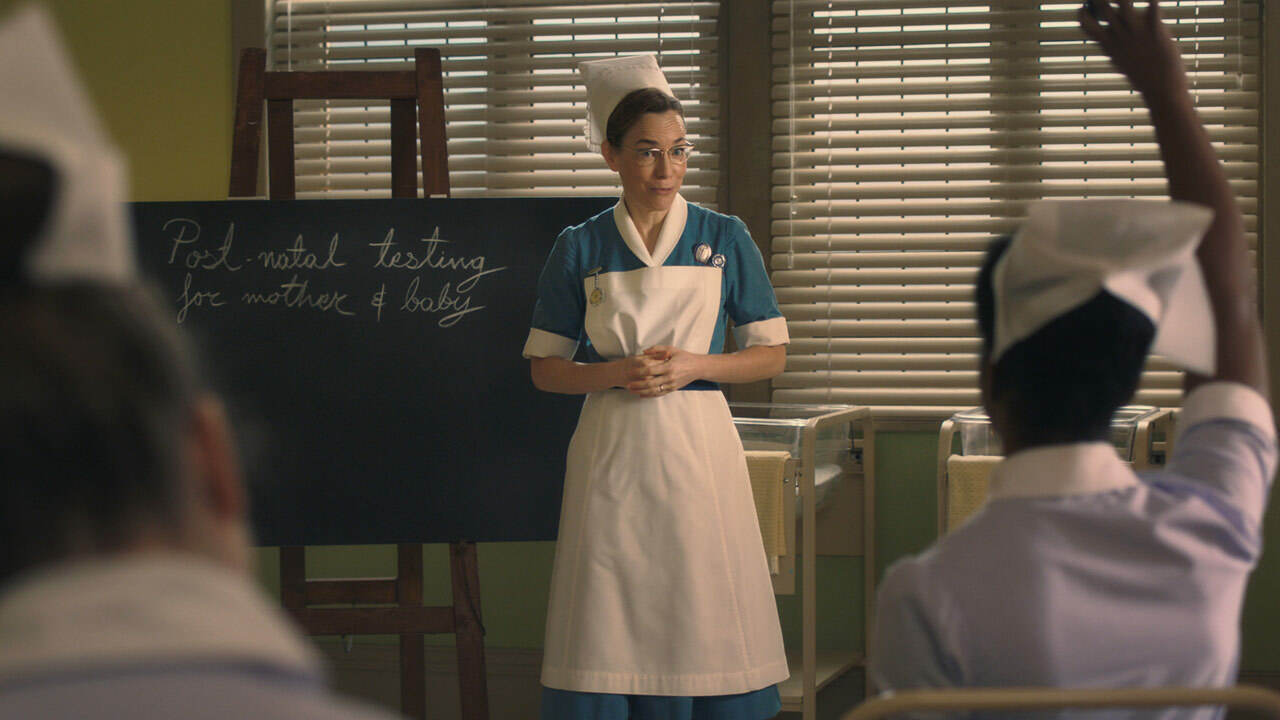
As a longtime nurse-midwifery educator, I really love the inclusion of student midwives in the storyline. Students are the lifeblood of our profession; without them, the wisdom and knowledge of our midwifery foremothers and fathers ceases to exist; through them it lives to serve women for generations to come. There is such responsibility in knowing that you are “raising up” the next generation of your profession. For the professor’s part, teaching the invaluable skills of midwifery – the art of performing a compassionate, trauma free pelvic exam, the hand maneuvers that gently guide babies safely earthside, the way to listen (more than talk) in a patient encounter, how to tell when silence is more therapeutic than any words could ever be – comes with its own degree of difficulty. But certainly, one of the most difficult skills to teach, perhaps the most difficult, is that of preventing imposition of one’s own beliefs and judgement into a patient situation – knowingly or unconsciously.
I played and replayed Shelagh Turner’s (played by Laura Main) response to student midwife Corrigan’s (played by Megan Cusack) well meaning, though somewhat self-righteous, comments about the situation between mother and daughter wherein the daughter was adopting her baby out. I loved the compassion, juxtaposed with the sternness in her voice, and the truth which Shelagh spoke. She informed student midwife Corrigan that she (Shelagh) would be taking the lead in the case from that point because “midwifery isn’t just about the number of births you can take on and put in your records. Sometimes it is about reading a situation with as much sensitivity and common sense as you can muster and putting your own emotions aside. You can’t get the best result for the mother if you’re putting what you feel center stage.” She could not be more correct…
How to be compassionate, and even more so, how to deliver compassionate care, with a healthy dose of empathy – in the face of circumstances wherein clients may make choices other than you would make - that is an extremely difficult skill to teach. Carrying that even further, how to have grace for your fellow midwives who may feel differently – and equally as strong – about a given issue, as you do involves use of the same skill. I have taught many midwifery students over the years; some who were opposed to offering contraception to their clients; some who announced in class that they would “never” offer hormone replacement therapy due to their own perception of risks outweighing any benefit (or due to distrust of big Pharma’s handling of menopausal therapies); others who did not feel that they could, or even that they should, offer all pregnancy options.
Always in those situations I try to circle back, with the student, to our role as midwives. We may disagree with clients on any number of things: their personal health habits, their birth plans, their choice to parent (or not to parent) a baby that they are carrying. The real crux of our relationship, however, is that we empower our clients with the information necessary to make an informed choice, one that works for them in their specific circumstances – and then we leave that choice to them – no personal opinion, and certainly no judgment, on our part is warranted. We are there to walk beside them no matter what their decision, and no matter how we personally may feel about that decision. It is good to have passion for what one does – certainly good to be passionate about one’s life work; yet we must be careful not to let our passion interfere with our ability to deliver compassion.
Get Another Take: Recommended Call the Midwife Recaps
From Thirteen.org | The British Tele Dish
From WTTW Chicago | The Playlist Blog
From NPT Nashville | The Vanderbilt University School of Nursing Recap
From WETA Washington | The Tele Visions Blog
From WGBH Boston | Watch Drama After Dark or Read the weekly recap